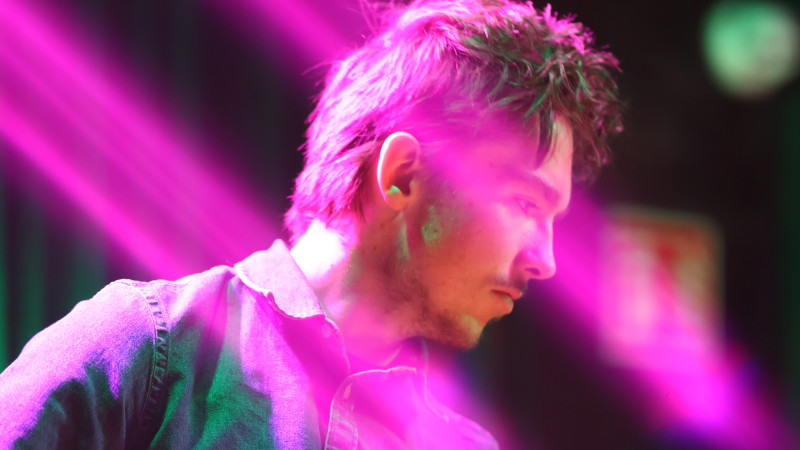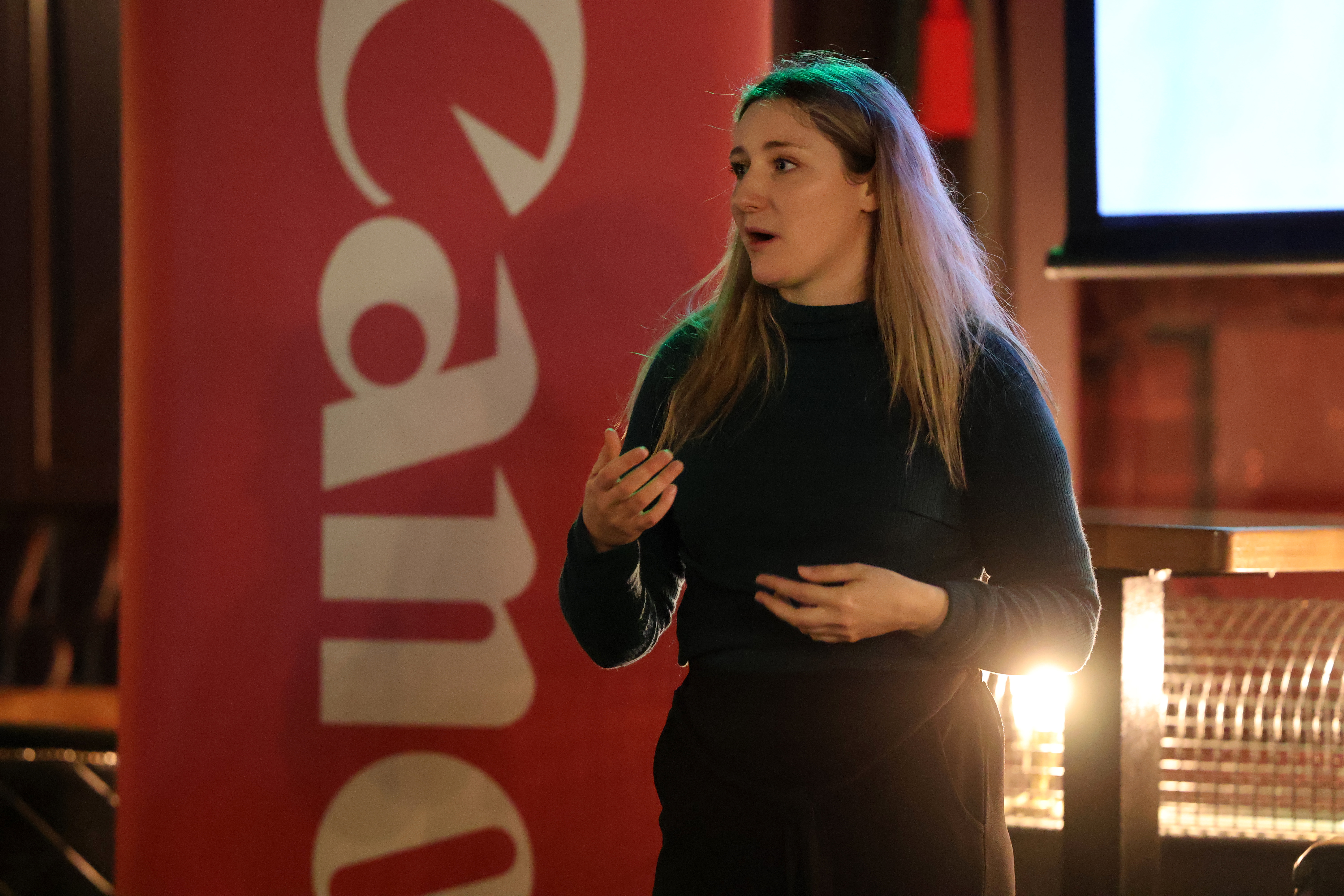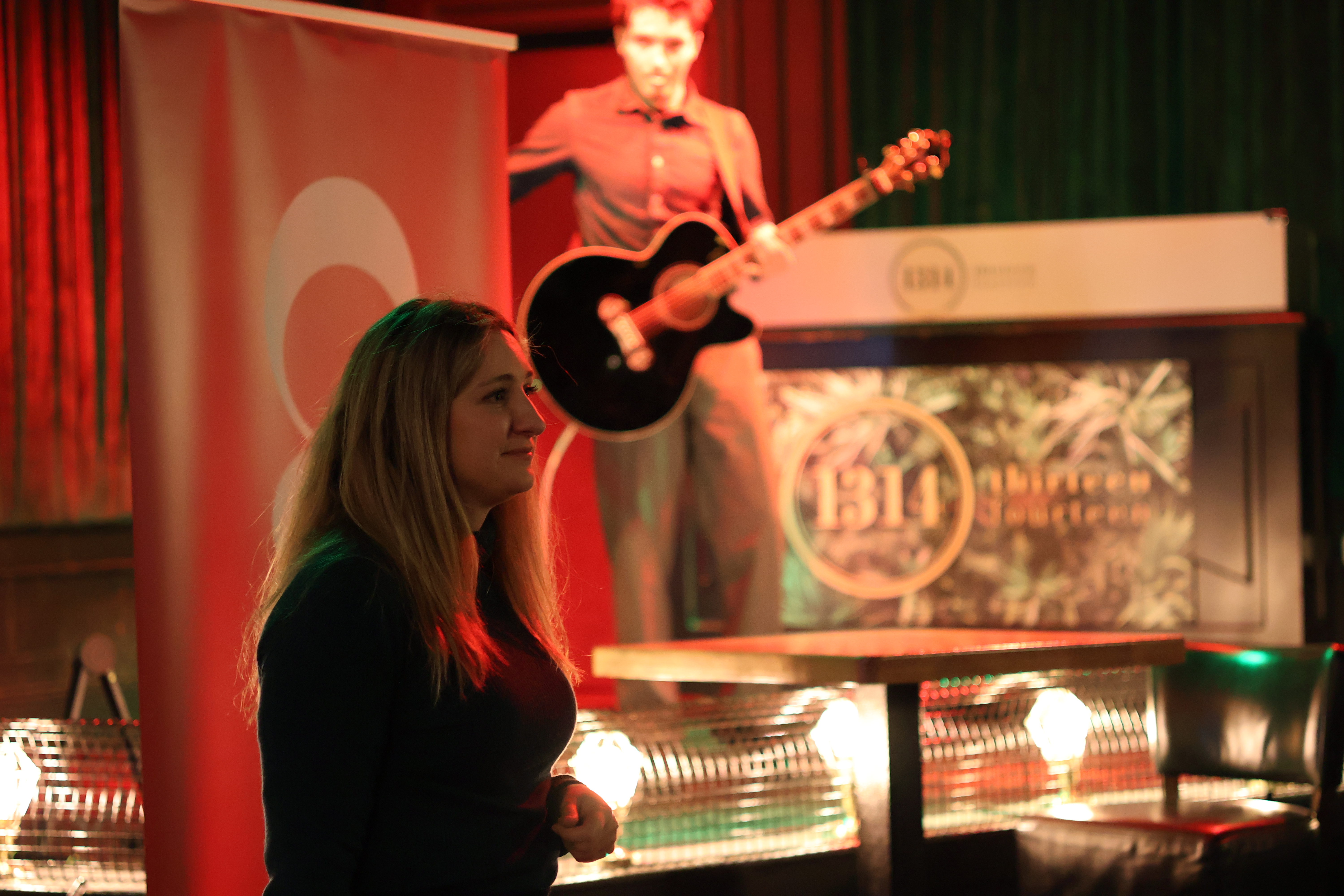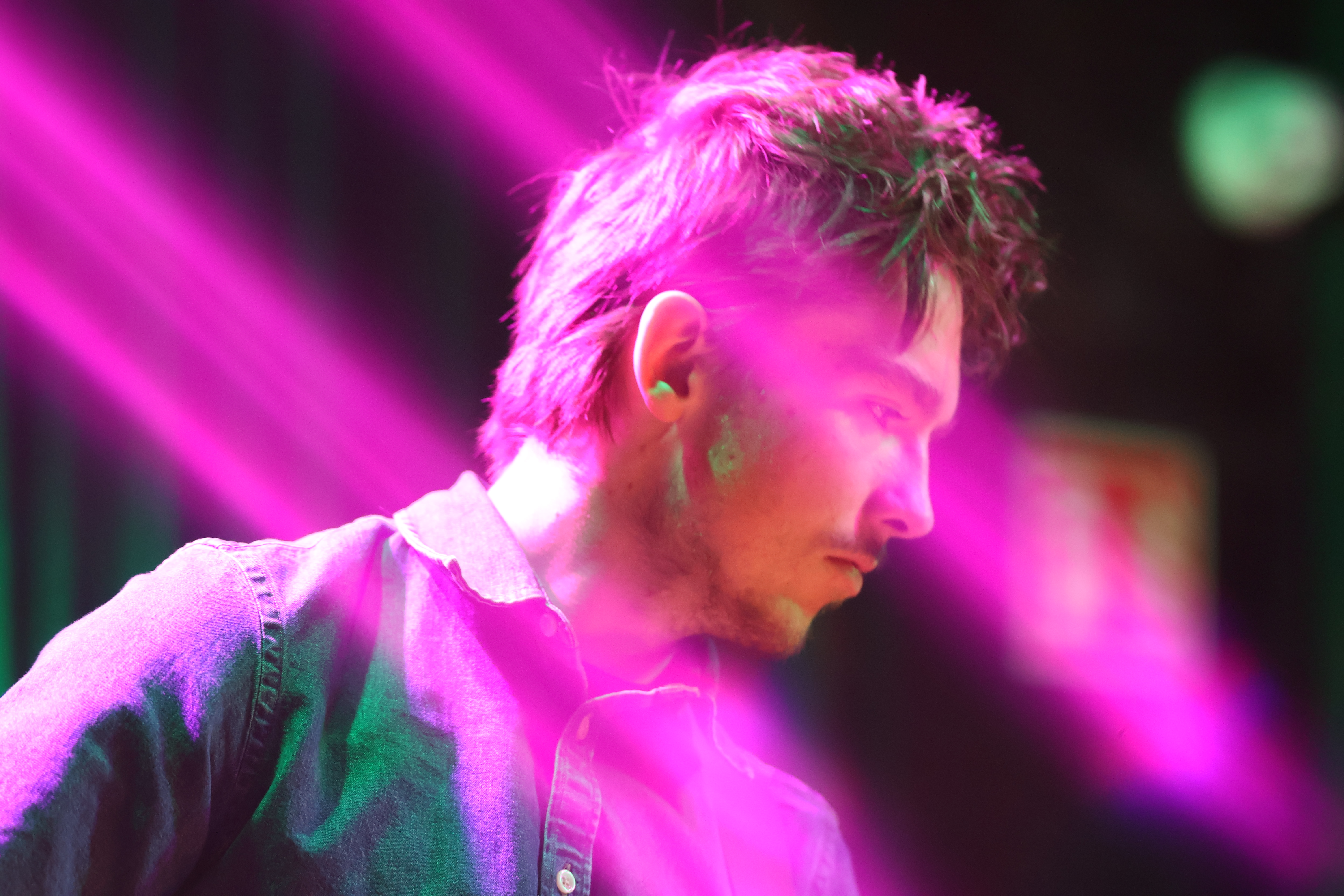Music Photography Tips - "Ask Me Anything" with Cat Gundry-Beck

Hey, my name is Cat Gundry Beck and I'm a music photographer living in Dublin and I'm here with Whelan Cameras in Limerick and we've just had the most incredible workshop. So, I am going to answer a few questions about music photography.
So, first question we've had is how do you keep your work fresh and creatively fulfilling even after shooting countless shows? Good question. So for me, I always love to just get the shots that I know are going to be the good shots for publications or for the artist or for the festival that I'm shooting. So these would be the more kind of standard shots. And then once I'm happy with those, then I start to play. And I try out so many different techniques and I'm always really excited about trying out different things. And even in the editing as well, I have a really fun time just doing wacky colours and maybe some grades on, you know, a sunflare or something on there. So, yeah, I find it really, really fun to just keep it really vibrant and, yeah, just new. What are some common mistakes you see beginner music photographers make? So, this is definitely one that I made. Um, so always include the person's name when you're emailing them if you know the name. So instead of just saying hello, uh, say hi Johnny, um, and make the email as personal as possible. So I see, you know, and I definitely did this as well where I was just kind of like, hey, can I have a press pass for this and whatever, you know, but make it really personal. Say why you want to shoot that band. Maybe name a song that you like by them or if you've seen them before, mention that.
Have you ever faced challenges as a female photographer in the music industry? and how have you navigated them? Wow, big topic. Okay, so I am all about female empowerment and just levelling out the playing field in photography in general. And I've definitely had a few different incidences where people have assumed things about me um because of my gender and that really sucks. But my main thing is that I just prove them wrong. You know, they might think that I'm not going to get good shots. They might think that I'm a certain kind of photographer that I'm not. And I love to just correct them. And yeah, I had one guy um come backstage and I was shooting a gig for the artist and so I was hired by the artist to shoot this concert. I was backstage um leaving my camera gear and everything. this guy comes in with his camera and starts talking down at me and he was explaining ISO to me and he was explaining camera settings to me and I just went like mhm mhm mhm and just said nothing as I reached into my camera bag and took this out and it was a very fun moment to be honest and he was like oh oh sorry you're a real photographer so yeah that definitely happens but thankfully it's happening less and less you see so much more photographers in the pit it now you see many more female uh music photographers and photographers in general. So, it's definitely changing and that's a really great thing to be part of.
What's your workflow for editing concert photos to keep them vibrant and true to the atmosphere? So, I take my pictures into Lightroom in the beginning and then I might bring them into Photoshop if it's a really good image and I want to spend a bit of time on it. I'll bring it into Photoshop, do a much more clean and, you know, really detailed with with the colors and everything in Photoshop. Um, so yeah, and I think it's really important when you're shooting for a publication to keep things very realistic and very true to how the show was, but then for my personal work, I love love love to get really creative with it and just kind of creating images that are how the music felt to me rather than how it might have completely looked at in looked like in real life. That's kind of how I do that. But also using presets as well and just upping the contrast, dropping the blacks, things like that. So yeah, usually just for publications, you don't want to overedit it, keep the fun for your personal work.
How do you capture the balance between the energy of a performance and the intimacy of the artist? So, there are so many ways to do this. I would say the first thing that comes to mind is to zoom. So, using maybe an 85mm prime lens like this one for closer portraits and then using a wide angle lens for capturing the atmosphere of the show. Also, if you're allowed to, you're not always allowed to, but after your first three songs in the pit, if you have permission to go to the back of the audience and take a kind of overall shot of the stage with the audience enjoying it in the foreground, that can be really nice establishing shot of like how it felt. And also, don't forget to turn around and take pictures of the audience when you're in the pit. I know it can be really, you know, you're really focused on the person playing the music, but don't forget to turn around cuz there's some awesome fans who have been waiting there for hours and who have painted their faces or worn certain hats for this. And yeah, it's really cool. Oh, and one more thing for capturing the intimacy with the artist is getting a picture in between the songs. So sometimes they might finish their song and you can see they're just looking out to the crowd and they're just basking in the applause and they might be really happy and yeah, it's a really cool moment to get. Or if they're just playing, you know, if they're playing guitar and singing and then they step away from the microphone to do like a guitar solo and it's really emotional, that's a really nice way to create some intimacy with the artist.
Can you recommend a photography course? There are so many amazing courses out there, both online and in person. And I would really recommend looking into what your local area is doing. So, when you have the further education colleges, a lot of them offer awesome photography courses. And also, Griffith College, I've heard, has an amazing uh bachelor's degree in photography. Um, and also looking into your local camera clubs as well. So those can be they're not specifically courses but then you're learning from other people and you're also creating community of photographers. Um online wise if you're looking to get more into portrait photography there's the portrait masters. He is a genius at Photoshop. So, if you want to get good at your edits, would definitely recommend that for both concert photography and portraiture and things like that.
What do you think makes a photographer’s work stand out enough to get noticed by artists or publications? So, I would say doing something a little bit different. So, finding something that is unique to you, and I know that's easier said than done, but finding some way of handling the colours in your edits or some lens that you're using that's a bit unusual, or moving to film photography and creating some, you know, film pictures of the concerts, um, or using specific crystals, things like that. So something that kind of, you know, the best compliment you can give a photographer is to say, "Hey, I saw a picture and I knew from the picture that it was yours because that means that you've really created your stamp." Um, so having a really set style like that, it means that artists will come to you looking for that style if they resonate with it. And also do not forget the power of networking. So much of it is about who you know, being brave enough to reach out and the worst you can get is a no really. So, I would just say keep trying, keep practicing, keep shooting gigs, keep shooting portraits, and keep knocking on doors, asking for press passes, asking to do shoots, you know, just keep going and amazing things will happen. I guarantee you.
What camera gear and lenses do you recommend for someone just starting out in concert photography? So, it's a really difficult one when you're just starting out and you don't have a huge budget to spend on camera gear. But what I would say is it is so worth the investment. So, I would recommend going for the Canon uh R50 or the Canon R8 are really good starter cameras. And then if you want to go a little bit higher, you could go for the Canon R six Mark II, which is one of the cameras that I have and I am so happy with it. And it's been just such a workhorse for me. It's never broken. and it's never done anything wrong for me. Um, and you know that will last a really, really long time. So, even if the upfront cost is high, it will last you such a long time. It will just bring your photos to the next level. Really, really well. And also, just look out for discounts, look out for sales, things like that. And uh, and then lens wise, I would really recommend prime lenses if you can. Um, so of course having like a 24-70mm f2.8 that's just, you know, a kit lens, it does the job. It's amazing. It really does good stuff. But if you want to really level up, then I would really recommend having prime lenses. So I would the most common three lenses that I would shoot with are a uh 16mm, 35mm, and an 85mm. And I switch between the three of them. And that's how I do most of my concert photography work. and the 35mm and the 16mm, both RF Canon lenses. They are incredible and they're really not that expensive. So, I would really recommend those. The 85mm is a big investment, but honestly, it's the best investment I've ever made. I love it so so much.
And it just gets its worth, you know, after having it for years because especially lenses, they just last for years. And it's just incredible. It's absolutely incredible. My 85mm it has definitely paid for itself at this point. So yeah, would definitely recommend trying out a few different cameras. Also going into the camera shop that makes such a difference because firstly, you're talking to people who know what they're talking about. They know exactly what they're talking about with all these different lenses, with all these different cameras. Second thing is you can actually pick them up and hold them. And that is such a huge deal because if you're just looking online at different cameras, you don't know how that is to hold. You know, you don't know what it feels like shooting with that camera. So, I would always always go into camera shops physically, chat to the people there, get their advice, and hold the camera. Yeah.
So, definitely pop into Whelan Cameras, say hi to the guys there. They are so knowledgeable. They really know what they are talking about. And it's also just so much fun meeting other people who were really into photography and just part of the community. So definitely go in there, check out their cameras, and have a great time and good luck with your next moves.














